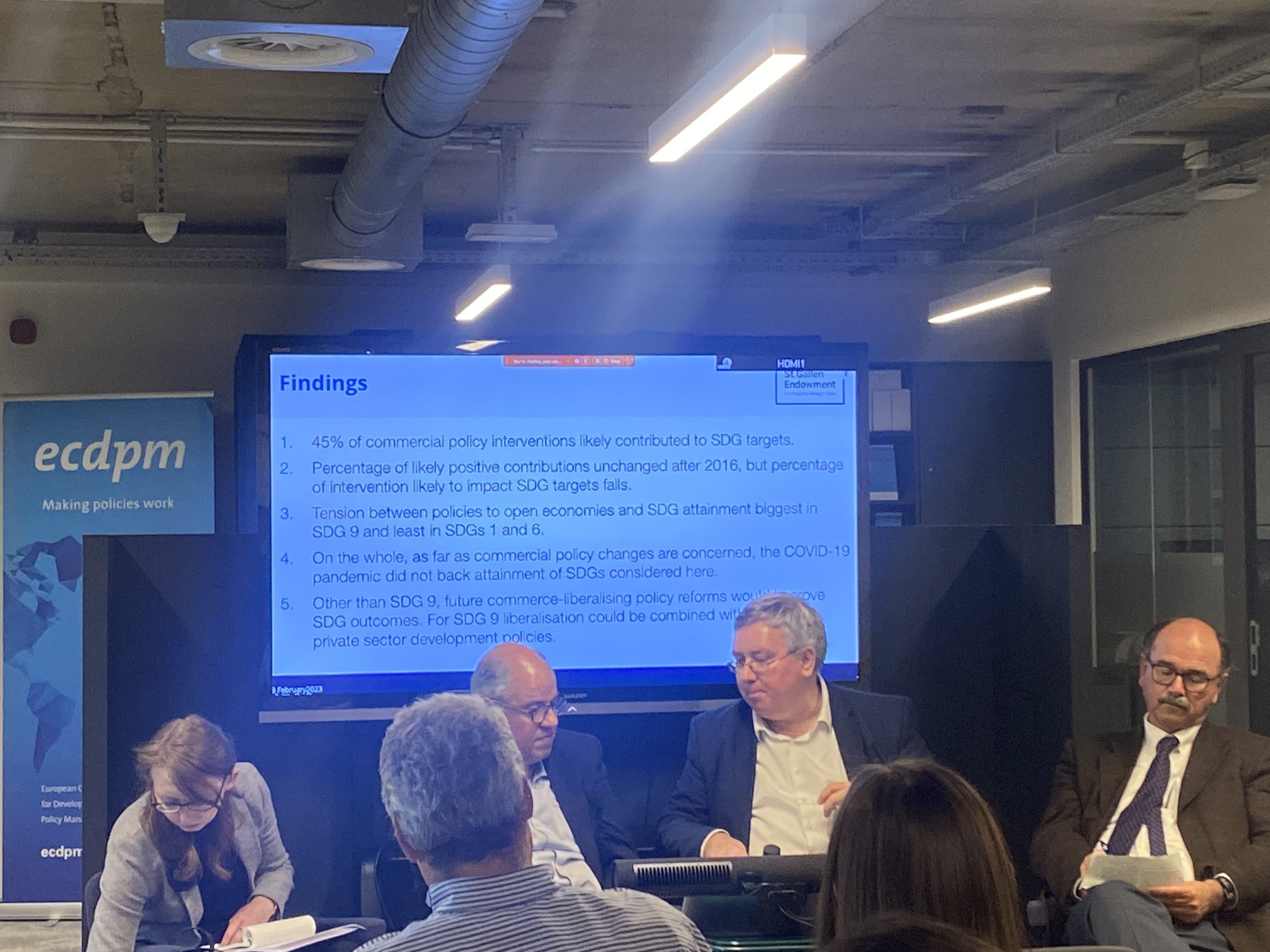On February 8, ECDPM hosted a public discussion on “EU Trade, Investment and Development Diplomacy in a fragmented world: The SDGs and the Global Gateway” revolving around potential tensions and complementarities between EU trade, developmental and investment policies focusing on the SDGs and the Global Gateway.

San Bilal, ECDPM’s Senior Executive and acting Associate Director, made a brief introduction and pointed out two major dimensions linked to the SDGs, notably their development perspective as well as their universal character. He also added that the Global Gateway is a combination of traditional trade tools and new policies and financial interventions aimed at achieving both the SDGs and the geopolitical and strategic goals of the EU.
Simon J. Evenett, Professor of international trade and economic development at the University of St. Gallen and the coordinator of Global Trade Alert, has underlined a knowledge gap related to SDGs indicators: the lack of tracking in trade and investment policy interventions and their subsequent impacts on SDGs indicators in order to have mapping for any evaluation purpose. He highlighted how under Agenda 2030, 45% of commercial policy interventions likely contributed to SDGs targets, ¼ of these have harmed SDGs objectives and the rest of them got neutral results, with very little impact from Covid-19. He also mentioned that low and upper-income countries are more responsive to commercial policy interventions while middle-income countries are less responsive. Last but not least, the lack of evaluation also has an impact on European governments’ accountability.
Bernard Hoekman, full-time Professor and Director of the research area “Global Economics” at the Robert Schuman Centre for Advanced Studies, has explained that there has not been a whole rethinking about the EU commercial policy to achieve SDGs, but a distinction has been kept between trade policies and sustainable development making it hard to build a more comprehensive strategy. In order to answer the question “What is the relationship between trade policies and individual SDGs goals?” we should fill the above-mentioned knowledge gap while also taking into consideration a policy-making perspective and the fact that the results of developmental policies will be visible over the years.
Ms Urszula Maria Stepkowska, Deputy Head of Unit C1, DG Trade, EU Commission, has underlined the need for a roadmap to facilitate self-compliance with EU requirements. These are the 5 points concerning the relationship between the Global Gateway and EU trade policy:
- It is a tool to serve trade policy and should be built on predictability and stability to encourage investments in Africa
- Specific investment facilitation
- Inter-linkages between trade, climate, environment, and business as a priority for Global Gateway
- Mindful of the African trade integration process in order to achieve better results through policies
- Focus on investment sustainability




